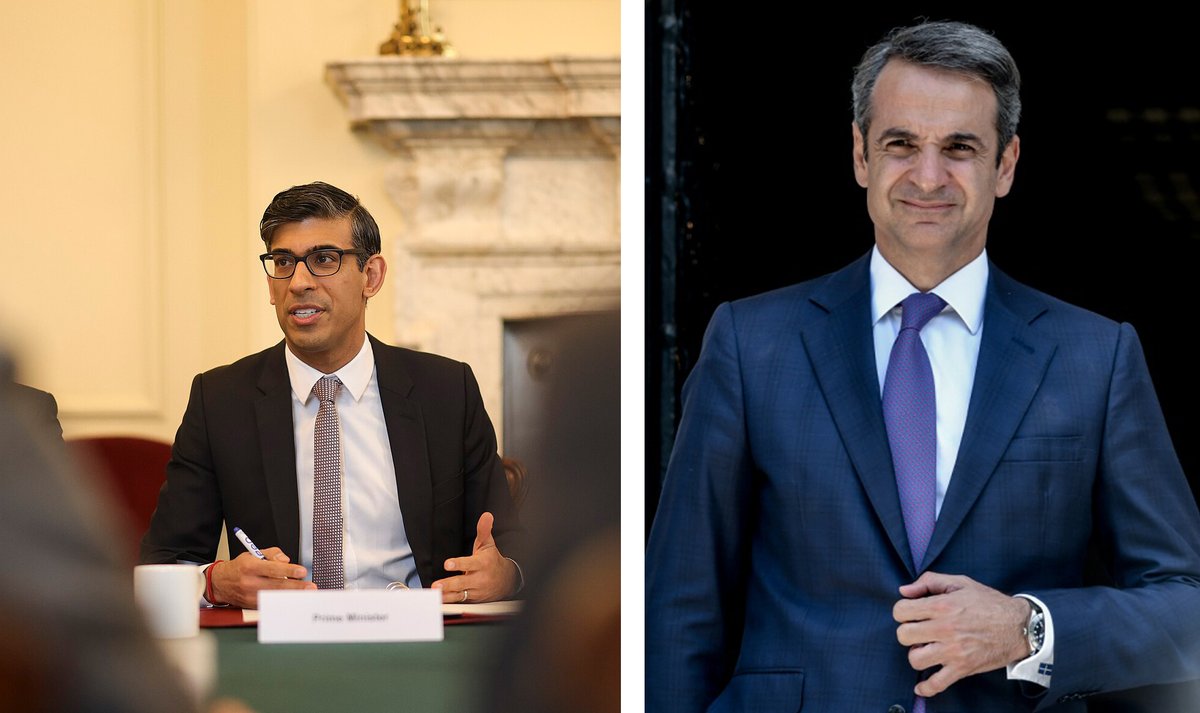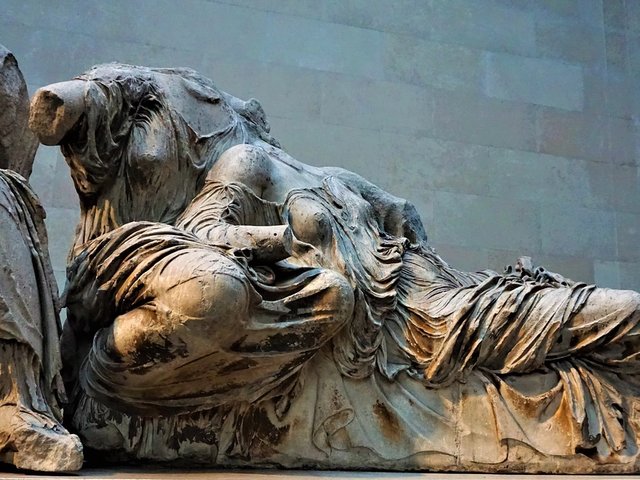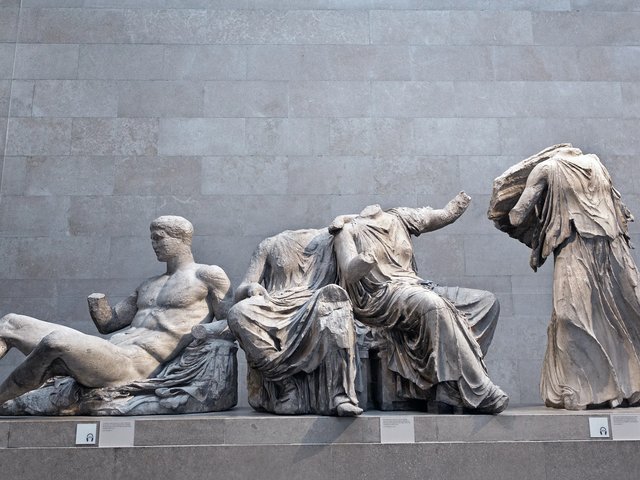The UK prime minister, Rishi Sunak, is embroiled in a row over the Parthenon Marbles after cancelling a meeting with the Greek prime minister scheduled to take place today (28 November). Earlier this week, the Greek leader, Kyriakos Mitsotakis, told the BBC that during his visit to London he would continue to lobby for a partnership deal over the controversial fifth-century-BC statues housed at the British Museum.
Alexander Herman, author of The Parthenon Marbles Dispute: Heritage, Law, Politics(Bloomsbury Publishing), tells The Art Newspaper: “It's definitely unfortunate that a long-planned meeting between two Prime Ministers was cancelled in this way at the last minute, seemingly over the long-standing Marbles row. If this is true, the dispute has now been propelled to a whole new level.”
Mitsotakis meanwhile met the Labour leader Keir Starmer on 27 November. Ahead of the talks Starmer indicated he was open to a loan deal “mutually acceptable to the British Museum and the Greek government”. However when Sunak pulled out of the planned meeting, Mitsotakis declined a secondary offer to meet the deputy prime minister, Oliver Dowden, instead.
According to the daily Politico newsletter, Sunak is said to have been “irritated” by Mitsotakis’ words, so much so that he took the step of calling off their talks while the Greek prime minister was halfway through his three-day trip. Mitsotakis responded: “I express my annoyance that the British prime minister cancelled our planned meeting just hours before it was due to take place. Anyone who believes in the rightness and justice of his positions is never afraid of confronting arguments.”
The row sparked a flood of comments on social media. The journalist Robert Shrimsley wrote on X (formerly Twitter) that “diplomacy is not pointlessly upsetting friends”. Other contributors on X expressed concerns that “the BM would face an avalanche of claims for other artefacts from all over the world if it agreed [to] this one.”
The 1963 British Museum Act currently prohibits a full return of the artefacts. For the past 40 years the Greek government has formally claimed the sculptures and expressed its desire to complete the Marbles display at the Acropolis Museum in Athens. But a senior Conservative Party source told the BBC: "Our position is clear; the Elgin [Parthenon] Marbles are part of the permanent collection of the British Museum and belong here."
Sam Coates, deputy political editor on Sky News, highlights the complexities in a post on X, saying: “The problem with the Elgin story is that No. 10 refuse to rule out a temporary loan. They play down the idea but insistently don’t kill it. There’s a small chance it can be done without legislative changes—the apparent red line—and government don’t reject that option entirely.”
Herman adds: “The British Museum is, and should always be, an arm's length institution so provided the trustees can operate within the terms of the British Museum Act 1963, they should be allowed to do so [loan the Marbles].”
The Parthenon Marbles have been housed in the British Museum since 1816 after they were removed from the Parthenon temple on the Acropolis in Athens by agents working for the Scottish nobleman Lord Elgin, the then ambassador to the Ottoman court. The sculptures went on display in the British Museum in 1817.
Last year we reported that the British Museum is to prioritise the refurbishment of its dilapidated Greek and Assyrian galleries as part of its ongoing Rosetta Project. Although the entire museum will be overhauled, no area of the building requires attention more urgently than its Western block, the oldest part of the museum, which houses Greek and Roman art.






